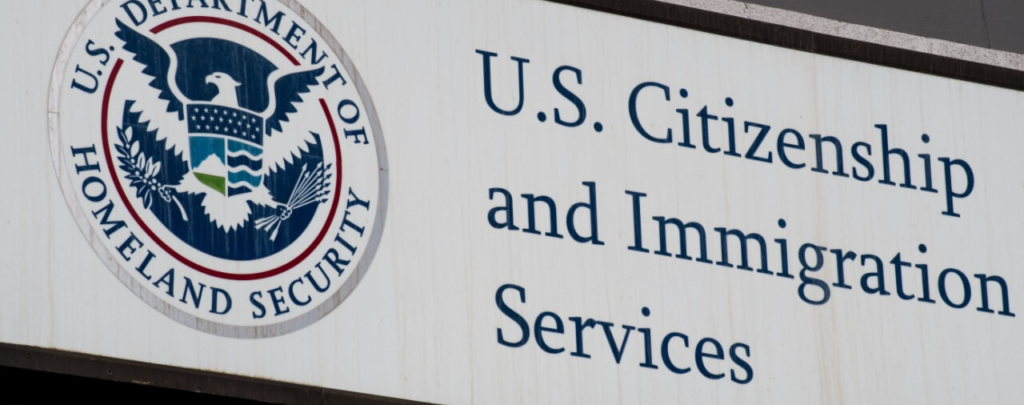Introduction
On March 3, 2017, the United States Citizenship and Immigration Services (USCIS) temporarily suspended premium processing for all H1B petitions. Over the next few months, the USCIS gradually resumed premium processing for certain types of H1B petitions. On October 3, 2017, the USCIS resumed premium processing for H1B extension of stay petitions and by effect, premium processing for all H1B petitions. This post includes all of the articles we published about the suspension of H1B premium processing. Please remember as you read that none of the suspensions remain in effect. To read about the resumption of H1B premium processing, please see our article on the subject [see article].
To learn about premium processing of Form I-129 petitions in general, including H1B petitions, please see our full article [see article]. Furthermore, please see our full selection of H1B visa articles to learn about a variety of issues involving the H1B nonimmigrant category [see category].
March 3, 2017: Premium Processing Suspended
On March 3, 2017, the United States Citizenship and Immigration Services (USCIS) announced that it will temporarily suspend premium processing for all H1B petitions starting on April 3, 2017 [link]. The USCIS explains that this suspension may last for up to six months. While premium processing is suspended, H1B petitioners will not be able to file the Form I-907, Request for Premium Processing Service for a Form I-129, Petition for a Nonimmigrant Worker which requests the H1B nonimmigrant classification. The USCIS explains that it will provide public notice before it resumes premium processing for H1B petitions.
In this article, we will examine some of the specific effects of the temporary suspension of premium processing for H1B petitions as well as the USCIS’s stated reasons for the suspension.
WHO IS AFFECTED?
The USCIS explains that “[t]he temporary suspension applies to all H-1B petitions filed on or after April 3, 2017.” This means that it will apply “to all petitions filed for the FY18 H-1B regular cap and master’s advanced degree exemption…” The suspension will also apply to H1B petitions that may be cap-exempt.
It is important to note that, in addition to not accepting a Form I-907 filed for a Form I-129 for an H1B petition, the USCIS will reject a Form I-129 H1B petition if it is submitted with a combined check for it and the Form I-907 request for premium processing of the Form 1-129 while premium processing is under suspension.
The USCIS explains that during the suspension it will continue to premium process form I-129 H1B petitions if the petitioner properly filed the associated Form I-907 before April 3, 2017. The USCIS will therefore refund the premium processing fee in such cases if the petitioner properly filed the Form I-907 before April 3, 2017, and if the USCIS then did not take adjudicative action on the case within the 15-calendar-day premium processing period.
The USCIS makes explicit that the suspension of premium processing does not apply to other eligible classifications on the Form I-129.
REQUESTING EXPEDITED PROCESSING
Notwithstanding the suspension of premium processing, a petitioner may submit a request to expedite processing of a Form I-129 H1B petition. The petitioner must demonstrate that it meets one of the expedite criteria. Expedite requests are reviewed on a case-by-case basis.
REASON FOR THE SUSPENSION
The USCIS explains that the temporary suspension will help it reduce overall H1B processing times. It also states that the suspension will allow it to:
Process long-pending petitions, which it has been unable to process due to both the volume of incoming petition and the recent surge in premium processing requests; and
Prioritize the adjudication of H1B extension of status cases that are nearing the 240-day mark.
__
June 26, 2017: Premium Processing Resumed for Conrad 30 Waiver Petitions and Interested Government Waiver Petitions
Beginning on June 26, 2017, the USCIS will resume premium processing for all H1B petitions filed for medical doctors under the Conrad 30 Waiver program. Please see our full article to learn about the Conrad 30 Waiver program [see article].
Also beginning on June 26, 2017, the USCIS will resume premium processing for those seeking H1B status through an interested government agency waiver (where a U.S. federal government agency requests a waiver of the two-year home residency requirement for J exchange visitors).
The USCIS has not yet lifted the premium processing suspension on other H1B petitions. Accordingly, premium processing remains unavailable for all other H1B petitions until the USCIS announces otherwise.
Please note that, notwithstanding the suspension of premium processing, an H1B petitioner may submit a request for expedited processing provided that it meets one of the expedited processing criteria.
Furthermore, please see our two blog posts that explain the value of the Conrad 30 Waiver program and why Congress should move to extend it permanently [see blog] [see blog].
__
July 24, 2017: Premium Processing Resumed for Certain Cap-Exempt H1B Petitions
On July 24, 2017, the USCIS announced that it had resumed premium processing for certain cap-exempt H1B petitions [PDF version]. Premium processing will resume for cap-exempt petitions where the H1B petitioner is:
An institution of higher education;
A nonprofit related to or affiliated with an institution of higher education; or
A nonprofit research or governmental research organization.
The USCIS added that “[p]remium processing will also resume for petitions that may also be exempt if the beneficiary will be employed at a qualifying cap-exempt institution, organization[,] or entity.”
Petitioners filing H1B petitions in categories for which premium processing has resumed may file the Form I-907, Request for Premium Processing Service concurrently with a qualifying H1B petition or for an H1B petition that has already been filed. Please see our full article on premium processing to learn more [see article].
The USCIS has not resumed premium processing for other H1B petitions, and it remains unavailable until the USCIS announces otherwise. In limited cases, an H1B petitioner may qualify for “expedited processing.”
Please continue to follow our site for updates on H1B premium processing. To learn more about other issues involving the H1B nonimmigrant category, see our full section [see category].
__
September 18, 2017: Premium Processing Resumed for H1B Petitions That Are Subject to the FY 2018 Cap
On September 18, 2017, the United States Citizenship and Immigration Services (USCIS) announced that it has resumed premium processing for all H1B petitions that are subject to the fiscal year (FY) 2018 cap [PDF version]. The USCIS added that the FY 2018 cap has been set at 65,000. Additionally, the USCIS also resumed premium processing for the 20,000 H1B petitions that are set aside to hire U.S. workers with a U.S. master’s degree or higher degree.
The USCIS had initially suspended premium processing for all H1B petitions effective April 3, 2017. Subsequently, the USCIS resumed premium processing for H1B petitions filed under the Conrad 30 Waiver Program or through the interested government agency process. The USCIS also resumed premium processing of certain cap-exempt H1B petitions.
The USCIS noted that premium processing for all remaining H1B petitions that are not subject to the FY 2018 cap or otherwise noted above remain suspended. The USCIS noted specifically that this includes H1B petitions for extensions of stay.
The USCIS stated that it will resume premium processing for all remaining H1B petition types for which it is suspended when agency workloads permit.





